Set up in 1976 by a group of benevolent advertising executives, the History of Advertising Trust (HAT) contains press ads from last month all the way back to the oldest collection from RF White (c1800), which was the UK's first advertising agency.
There is nothing like it in the rest of Europe and it is the biggest in the world although, the discreet location a converted barn in a field on the outskirts of Norwich belies this. But any inconvenience is offset by the cheap rent and increased space; the archive now occupies 6,000 sq ft and is expanding all the time.
Food and drink advertising makes up the bulk of the archive and much of it is 24-carat nostalgia. HAT is a registered charity, and a number of companies in the fmcg sector help fund it, including Greene King, Heinz, Scottish Courage and Warburtons.
Some businesses, such as Hovis and the National Dairy Council, pay the trust to keep their archive in order, but there is also a huge amount of material from companies such as Unilever, even though they have their own archives.
It is consulted by advertising agencies and marketers and organises exhibitions, while students travel there from all over the world to use it in their research projects. It can also provide information about the historic sales and advertising spend of a company. Some advertising agencies take inspiration from their older material while others find it helpful when pitching for a new client to see what's been done before.
As well as the standard artwork, newspaper and magazine advertisements, the trust has begun collating other media, such as video and audio tapes with jingles of TV commercials on CD-Rom. Direct mail shots are also filed as well as journals from PR firms.
But the trust does not accept just any old advertisement. Although they don't have to be beautiful,or even brilliantly designed, they must have some significance. Says chief executive Michael Cudlipp: "We take the view that we must consider what people would want to see in 50 to 100 years from now."
Advertising has been used since Greek and Roman times, but mass advertising began appearing in the UK from the 1850s, when advertisement duty was abolished and then newspaper stamp duty was removed. By the 1920s it was a powerful force in the economy and remained unchanged and virtually unregulated until the 1960s, when the Advertising Standards Authority was established and put an end to wild claims of superiority for products.
After years spent studying the archives, Cudlipp says advertising has become much faster, especially with the advent of the internet. As a result most designers work on screen and don't keep their rough drawings. Although this is faster and more efficient, it means an end to the scores of beautifully crafted artwork of the past, filed gently in tissue paper.
Looking round the archive, there are files as diverse as Chickens, 1980', and the original artwork for the concept of the Milk Tray man advertisement. There is also every HP label that was designed and a folder full of Victorian trade cards like today's direct mail shot often in the shape of the products they were advertising, such as a pickle and a monkey. Cudlipp explains: "We never know what's going to come in. Sometimes an ad agency moves and we get the stuff it hasn't got room for, or it comes from private collections. Sometimes companies get taken over and they want to ditch stuff."
When clothes retailer C&A closed, Cudlipp jumped at the chance to salvage ads covering 75 years of company history. He says: "They would have gone in the skip, otherwise."
And not long ago it was given 24 hours to rescue 40 years of print archive from the skip, containing all British Airways' press ads from 1948 to the 1980s.
Adds Cudlipp: "HAT is the most important advertising archive in this country, but putting a value on it is hard."
Curator Chloe Veale says HAT needs a catalogue system so that researchers can use an index to get what they want more quickly, and an expensive new database is on the wish list for the archive if it gets a lottery grant. Says Veale: "Our dream is to create an online archive on our website. It could happen one day."
{{ANALYSIS }}
There is nothing like it in the rest of Europe and it is the biggest in the world although, the discreet location a converted barn in a field on the outskirts of Norwich belies this. But any inconvenience is offset by the cheap rent and increased space; the archive now occupies 6,000 sq ft and is expanding all the time.
Food and drink advertising makes up the bulk of the archive and much of it is 24-carat nostalgia. HAT is a registered charity, and a number of companies in the fmcg sector help fund it, including Greene King, Heinz, Scottish Courage and Warburtons.
Some businesses, such as Hovis and the National Dairy Council, pay the trust to keep their archive in order, but there is also a huge amount of material from companies such as Unilever, even though they have their own archives.
It is consulted by advertising agencies and marketers and organises exhibitions, while students travel there from all over the world to use it in their research projects. It can also provide information about the historic sales and advertising spend of a company. Some advertising agencies take inspiration from their older material while others find it helpful when pitching for a new client to see what's been done before.
As well as the standard artwork, newspaper and magazine advertisements, the trust has begun collating other media, such as video and audio tapes with jingles of TV commercials on CD-Rom. Direct mail shots are also filed as well as journals from PR firms.
But the trust does not accept just any old advertisement. Although they don't have to be beautiful,or even brilliantly designed, they must have some significance. Says chief executive Michael Cudlipp: "We take the view that we must consider what people would want to see in 50 to 100 years from now."
Advertising has been used since Greek and Roman times, but mass advertising began appearing in the UK from the 1850s, when advertisement duty was abolished and then newspaper stamp duty was removed. By the 1920s it was a powerful force in the economy and remained unchanged and virtually unregulated until the 1960s, when the Advertising Standards Authority was established and put an end to wild claims of superiority for products.
After years spent studying the archives, Cudlipp says advertising has become much faster, especially with the advent of the internet. As a result most designers work on screen and don't keep their rough drawings. Although this is faster and more efficient, it means an end to the scores of beautifully crafted artwork of the past, filed gently in tissue paper.
Looking round the archive, there are files as diverse as Chickens, 1980', and the original artwork for the concept of the Milk Tray man advertisement. There is also every HP label that was designed and a folder full of Victorian trade cards like today's direct mail shot often in the shape of the products they were advertising, such as a pickle and a monkey. Cudlipp explains: "We never know what's going to come in. Sometimes an ad agency moves and we get the stuff it hasn't got room for, or it comes from private collections. Sometimes companies get taken over and they want to ditch stuff."
When clothes retailer C&A closed, Cudlipp jumped at the chance to salvage ads covering 75 years of company history. He says: "They would have gone in the skip, otherwise."
And not long ago it was given 24 hours to rescue 40 years of print archive from the skip, containing all British Airways' press ads from 1948 to the 1980s.
Adds Cudlipp: "HAT is the most important advertising archive in this country, but putting a value on it is hard."
Curator Chloe Veale says HAT needs a catalogue system so that researchers can use an index to get what they want more quickly, and an expensive new database is on the wish list for the archive if it gets a lottery grant. Says Veale: "Our dream is to create an online archive on our website. It could happen one day."
{{ANALYSIS }}








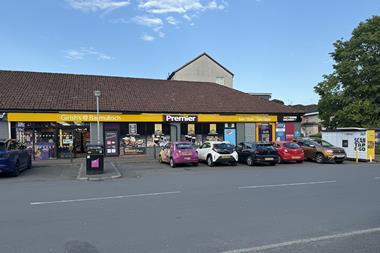
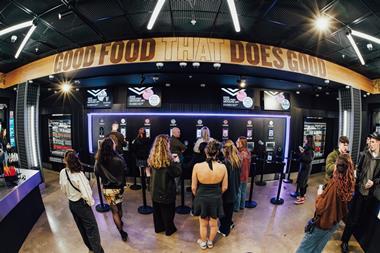

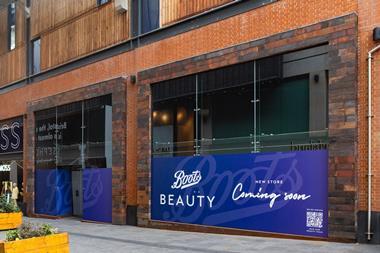
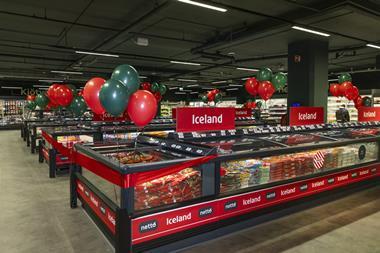
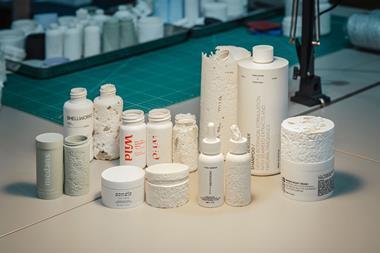
No comments yet